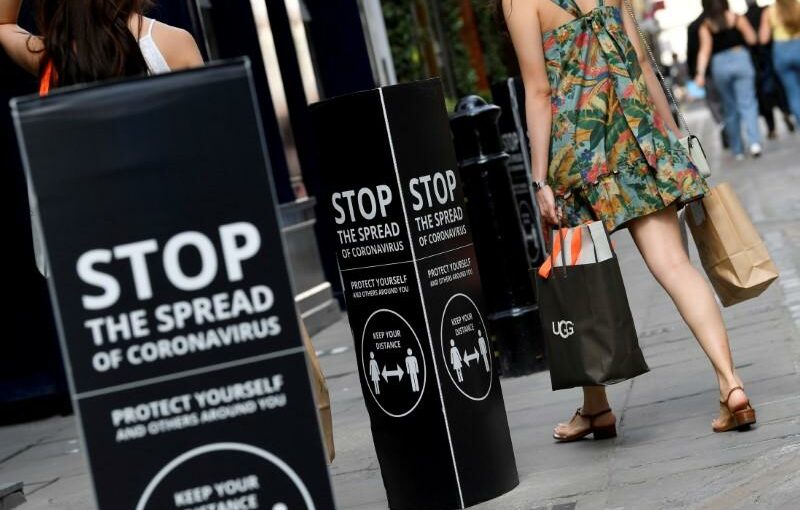LONDON (Reuters) – British consumers are their most confident since the COVID-19 pandemic struck almost a year ago, buoyed by hopes that the country’s fast COVID-19 vaccinations programme will boost the economy, a survey showed on Friday.
The overall consumer confidence index from market research firm GfK rose five points to -23, due mostly to a 14-point improvement in views about the economy over the next 12 months.
A Reuters poll of economists had pointed to a much smaller improvement in the overall index to -27.
Joe Staton, GfK’s client strategy director, warned that it was more realistic to look at the challenges ahead than think about a return to normality.
“We need to be cautious because the positive tailwinds of the vaccination roll-out are being met by the very strong headwinds of unemployment, the threat of inflation and the difficulty that many face in affording day-to-day living costs,” he said.
Finance minister Rishi Sunak is expected to announce more jobs support in a budget plan on March 3.
Prime Minister Boris Johnson is moving cautiously with regard to lifting social distancing restrictions that contributed to the economy shrinking by 10% last year, the most in three centuries.
But Sunak is expected to start weaning the economy off his nearly 300-billion-pound ($419 billion) emergency rescue programme as soon as he can.
In February last year before the pandemic hit, GfK’s overall confidence index stood at -7.
Britain went its third national lockdown last month which has forced many businesses to close.
But the prospects for a recovery in the economy have improved as the country rolls out Europe’s fastest COVID-19 vaccination programme to date.
GfK’s measure of how willing consumers are to make major purchases improved to -19 but remained well below its level of +6 in February 2020.
The Bank of England is watching closely to see if households go on a spending spree when the current lockdown is lifted after an enforced period of savings while they were stuck at home.
($1 = 0.7158 pounds)
Source: Read Full Article
